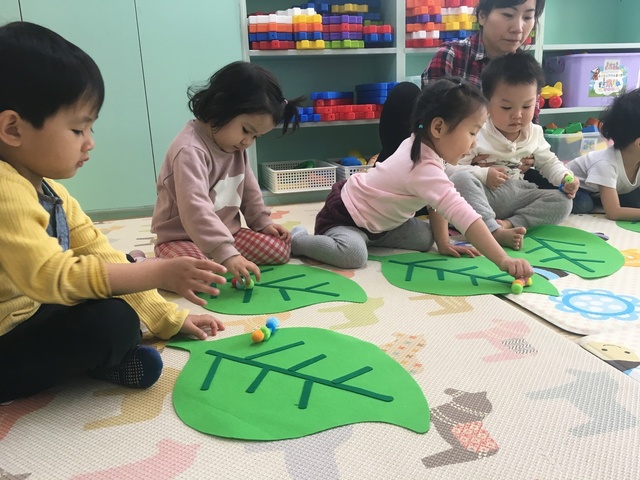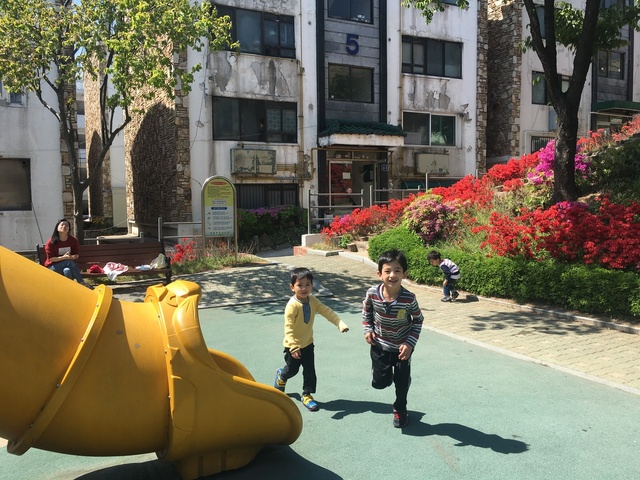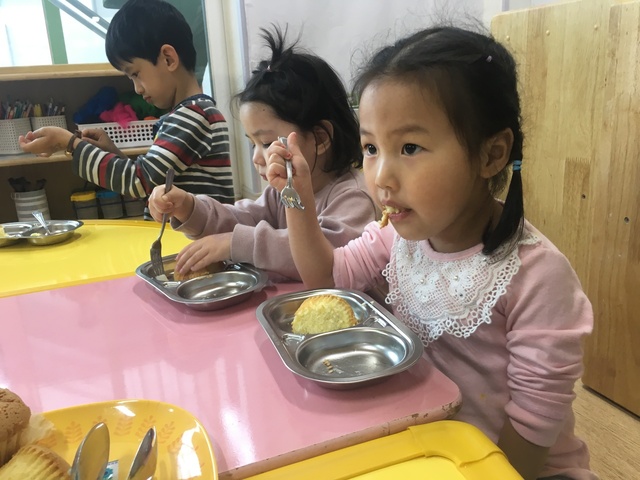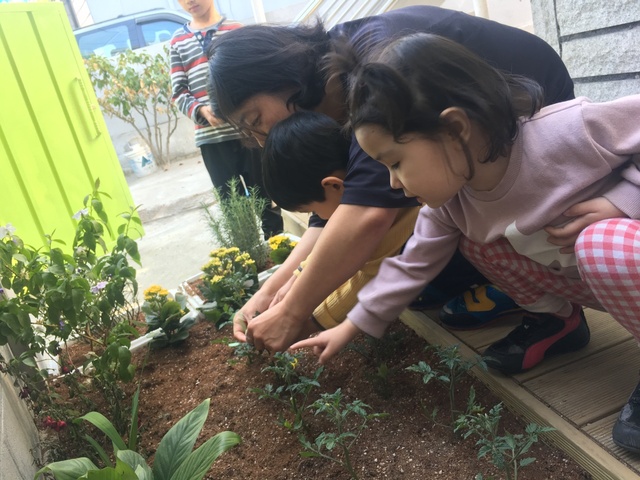Children of undocumented migrants called ‘illegal’ and denied basic rights (hankyoreh)
“The children here are frequently sick and have a hard time recovering. Dat, 4, whose parents are from Vietnam, often got pneumonia because he lived in a mouldy basement. After 50 months, his physical development was only at the 24-month level. Since undocumented migrant children aren’t covered by National Health Insurance, Dat’s parents have to pay the whole doctor’s bill. Even a mild cold ends up costing nearly 20,000 won (US$17.50). “Parents can’t take their children to the doctor unless they’re really sick,” said Bae Sang-yun, director of the center.”
 |
|
Children learn the process of a caterpillar becoming a butterfly at Asia Chang Daycare Center in Gunpo, Gyeonggi Province, Apr. 28. (by Park Su-ji, staff reporter)
|
Daycare centre in Gunpo sees number of children rise and fall according to government crackdowns
This daycare center was built by renovating a 182-square meter flat on the second floor of a building. In a small garden out front, there’s a healthy crop of cherry tomatoes that the children planted.
But this place is different from other daycare centers. The teachers watching the children romping around the padded floor are resigned to the possibility that one of them might not show up the next day, without any notice. When parents don’t show up at the appointed time to pick up their children, the teachers think less about the extra work this entails than about a a government crackdown.
 |
|
Children play on the playground at Asia Chang Daycare Center in Gunpo, Gyeonggi Province, Apr. 28. (by Park Su-ji, staff reporter)
|
This past January, Asia Chang Daycare Center, which looks after the children of undocumented migrant workers, opened in Gunpo, Gyeonggi Province. The space was provided by the Beautiful Foundation, while the center is run by Asia Chang, a group advocating the human rights of migrants. Just like many other parents, undocumented migrant workers need someone’s help to raise their kids. Official daycare centers are out of their reach, which is why a handful of these alternatives have opened in Seoul and Gyeonggi Province. The children here that are running around in front of your eyes don’t exist, at least according to government records.
The children here are frequently sick and have a hard time recovering. Dat, 4, whose parents are from Vietnam, often got pneumonia because he lived in a mouldy basement. After 50 months, his physical development was only at the 24-month level. Since undocumented migrant children aren’t covered by National Health Insurance, Dat’s parents have to pay the whole doctor’s bill. Even a mild cold ends up costing nearly 20,000 won (US$17.50). “Parents can’t take their children to the doctor unless they’re really sick,” said Bae Sang-yun, director of the center.
 |
|
Children watch a music video while eating lunch at Asia Chang Daycare Center in Gunpo, Gyeonggi Province, Apr. 28. (by Park Su-ji, staff reporter)
|
These children aren’t getting free daycare – it costs about 1 million won (US$880) a month per child. But thanks to donations, the parents only have to pay 100,000 won. They’re basically relying not on the government but on good will. As word about the daycare center spread, people have moved to Gunpo from other parts of Gyeonggi Province and from Seoul. The daycare center said there are usually about 10 children at the daycare center, but when there’s a crackdown, the number decreases. There are currently seven children at the center.
 |
|
Children put name tags on cherry tomatoes they planted at Asia Chang Daycare Center in Gunpo, Gyeonggi Province, Apr. 28. (by Park Su-ji, staff reporter)
|
Undocumented newborn babies are sometimes sent back to their home countries alone, without their parents. Last week, the parents of a six-month-old baby ultimately gave up their efforts to enroll the child in the center and sent the child home. Even if they had sent the baby to the center, they both have to work until after 9 pm, and there was no one to look after the baby and no money to pay for it. The baby’s mother sobbed as she spoke with Bae on the phone. “If kids had the minimum right to be taken care of, which might include temporary visas for kids, you wouldn’t see babies being separated from their parents before they’ve even been weened,” he said. While South Korean families turn to emergency childcare services provided by the central government and local governments for gaps in their schedule, such services aren’t available for these undocumented migrants.
Groups trying to support undocumented migrant children have tried unsuccessfully to pass the Basic Law to Guarantee the Rights of Migrant Children. The form of assistance they’re currently exploring would entail revising the Child Welfare Act. “South Korean society is disregarding the universal human right of protecting children,” said So Rami, a lawyer with the Gonggam Human Rights Law Foundation. In 1991, South Korea ratified the Convention on the Rights of the Child, which states that all children must be protected from all kinds of discrimination.
By Park Su-ji, staff reporter in Gunpo
Original Article from http://bit.ly/2r113T1
